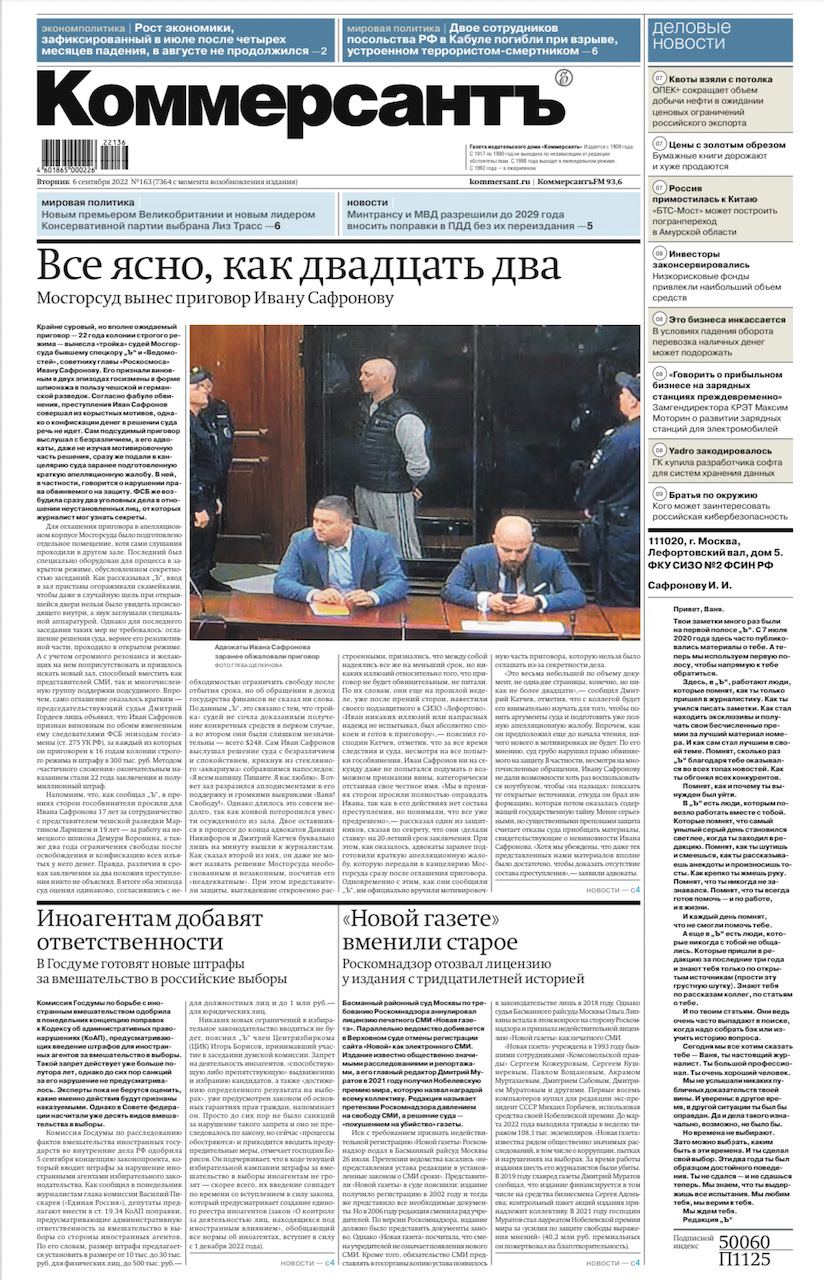Presidential spokesman Dmitry Peskov called the sentence to journalist and ex-adviser of Roscosmos Ivan Safronov, who was given 22 years in a case of treason, “very harsh”. According to a Kremlin spokesman, Safronov must be admitted guilty in order to ask the president for a pardon, allegedly this is the legal procedure. However, the law does not actually provide for this.
“I have no authority, I do not have the right to comment on the decision of the court. I can only state that according to the law, in theory, there is a right to appeal. And according to the law, every convicted person has the right to ask for pardon. There is, again, a certain procedure prescribed by law. But a prerequisite for asking for pardon is an admission of guilt. If I'm not mistaken, Safronov never admitted his guilt," Peskov said.
In fact, in the Criminal Code, confession of guilt is not a condition for pardon. So, in 2016, Vladimir Putin pardoned Ukrainian pilot Nadezhda Savchenko, who was convicted of complicity in the murder of Russian journalists in the Donbas, despite the fact that she pleaded not guilty. In 2019, Ukrainian director Oleg Sentsov was pardoned , sentenced in Russia to 20 years in prison on charges of plotting a terrorist attack in Crimea. He also pleaded not guilty. In 2020, Putin pardoned 26-year-old Israeli citizen Naama Issahar, convicted of possession and smuggling of drugs, although she ultimately pleaded guilty only partially.
The ex-head of Yukos, Mikhail Khodorkovsky, who was pardoned in December 2013, said that he wrote a petition addressed to Putin, but did not admit guilt in the case of embezzlement and tax evasion. Dmitry Peskov then stated that "if he asks for pardon, then he admits guilt." Putin himself claimed in 2020 that Khodorkovsky, in a letter asking for pardon, indirectly admitted his guilt and asked to be released ahead of time because his mother was sick.
Former Kommersant journalist and former adviser to the head of Roscosmos Ivan Safronov was sentenced to 22 years in a strict regime colony, as well as a fine of 500 thousand rubles and two years of restriction of freedom after his release in the case of “transferring classified information” about the Russian Armed Forces. Now Safronov is 32 years old. The accusation, as the publication "Project" found out, does not withstand any criticism. It is based only on conjectures: none of the “witnesses” knows anything about the “crimes” of the journalist, almost all the information that he allegedly transmitted and which is considered “state secret” is in the public domain.
The editors of Kommersant wrote a letter to Safronov and placed it, among other things, on the front page of the paper issue: “Times are not chosen. But you can choose what to be in these times. And you made your choice. These two years you have been a model of decent behavior. You didn't give up and you won't give up now. We know that you will pass all trials. We love you, we believe in you. We are waiting for you".



